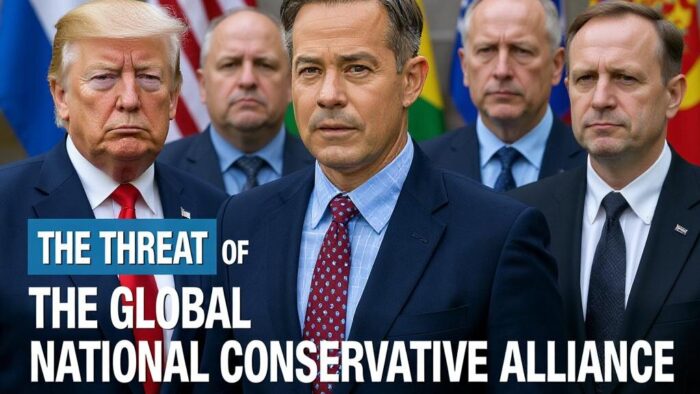Election interference allegations by the USAID in Hungary have gained renewed attention following the Trump administration’s decision to shut down the US Agency for International Development entirely. On 1 July 2025, Hungarian Conservative reported that Secretary of State Marco Rubio announced USAID’s termination, with Hungarian officials claiming vindication over longstanding accusations that the agency funded opposition groups during Hungary’s 2022 parliamentary elections. The article begins:
US Secretary of State Marco Rubio announced on 1 July 2025 that the US Agency for International Development (USAID) has ended all of its operations—a move hailed as a significant victory for sovereignist, patriotic forces worldwide. ‘During the Trump Administration’s thorough review of thousands of programmes and over $715 billion in inflation-adjusted spending over the decades, it became apparent the US Agency for International Development (USAID) fell well below this standard,’ Rubio wrote in a Substack post titled ‘Make Foreign Aid Great Again’ on Tuesday. He noted that ‘since the Cold War, USAID has built a globe-spanning NGO complex at taxpayer expense but achieved little: development objectives have rarely been met, instability has often worsened, and anti-American sentiment has only grown.’ Rubio listed billions of US taxpayers’ dollars spent in regions such as the Middle East and North Africa, where, despite significant investment, Washington’s favourability ratings remain lower than China’s.
Key Points
- Hungarian national intelligence investigation in 2022 found USAID and the National Endowment for Democracy funneled millions to the opposition during parliamentary elections
- USAID Administrator Samantha Power visited Hungary in 2023 to meet opposition figures, describing efforts to “make a change” in the country.
- Elon Musk’s review revealed billions in US taxpayer dollars funded foreign political interference, including substantial sums to Hungarian NGOs and media.
- Hungary appointed government commissioner András László to investigate USAID funding and proposed a transparency law to sanction foreign-funded political activities.
GIOR Analysis of Hungarian Claims
The claim asserts that US government-funded organizations—specifically USAID and NED—were investigated by Hungarian authorities for allegedly channeling millions of dollars to support Hungary’s opposition during the 2022 parliamentary elections:
-
Official Investigations and Reports:
-
Hungarian intelligence services and government officials have repeatedly alleged foreign interference, particularly from US-funded organizations, in Hungary’s domestic politics, especially around election periods.
-
Reports from Hungarian government-affiliated sources and intelligence summaries, such as those from the National Information Centre (NIK), have identified USAID and NED as donors to NGOs, media outlets, and think tanks that are often associated with the opposition.
-
The Sovereignty Protection Office in Hungary identified organizations such as Internews, which is funded by USAID and NED, as channels for US public funds to reach Hungarian media critical of the government. It stated that these funds played a role in financing the opposition coalition during the 2022 elections.
-
-
Public Statements and Political Reactions:
-
Hungarian government officials have publicly accused USAID, NED, and other US organizations of supporting opposition groups and media, framing these actions as threats to national sovereignty.
-
In response, Hungary has proposed or enacted legislation to increase transparency and restrict foreign funding of political activities within the country.
-
- US Perspective
-
USAID and NED openly support democracy, civil society, and independent media globally, including in Hungary.
-
US officials, including former Ambassador David Pressman and USAID Administrator Samantha Power, have met with opposition figures and journalists in Hungary, which some have interpreted as evidence of political interference.
-
However, the US government and these organizations maintain that their funding is intended to support democratic values, transparency, and civic engagement, rather than directly influencing election outcomes.
-
The claim is valid in the sense that Hungarian national intelligence investigations have identified USAID and NED as sources of funding for NGOs, media, and organizations associated with the opposition during the 2022 parliamentary election campaign. The Hungarian government has used these findings to justify legislative measures against foreign funding. However, the US government and these organizations claim that their funding is intended to support democracy and civil society, not to influence election outcomes. The characterization of these activities as a “scheme to funnel millions” to the opposition is a matter of political interpretation and debate.
- https://www.hungarianconservative.com/articles/current/usaid-operations-foreign-interference-balazs-orban-hungary/
- https://www.hungarianconservative.com/articles/current/david-pressman-accountability-media-usaid-interference-bryan-leib/
- https://hungarytoday.hu/u‑s-german-sponsors-of-hungarian-opposition-parties-inadvertently-revealed/
- https://helsinki.hu/en/wp-content/uploads/sites/2/2023/10/OSCE-WHDC-2023-HHC-civic-space-statement.pdf
- https://abouthungary.hu/news-in-brief/internews-channelled-us-public-funds-to-hungarian-media-critical-of-government
- https://www.ned.org/region/central-and-eastern-europe/
- https://carnegieendowment.org/research/2025/07/what-future-for-international-democracy-support?lang=en
- https://www.fmprc.gov.cn/eng/xw/wjbxw/202408/t20240809_11468618.html
- https://newcriterion.com/dispatch/the-doge-team-zeroes-out-the-national-endowment-for-democracy/
- https://www.cer.eu/in-the-press/filling-usaid-gap-how-europe-can-step-support-democracy
Hungary as a Russian Influence Vehicle
Hungary’s political trajectory under Viktor Orbán has become a focal point for Russian influence within the European Union, as Budapest increasingly mirrors Moscow’s rhetoric on Ukraine and obstructs EU sanctions and aid to Ukraine, highlighting its role as a conduit for Russian interests. This alignment is further institutionalized through platforms that promote illiberal ideas aligned with Kremlin objectives. The Hungarian government’s recent legislative moves, such as defending controversial child protection laws that echo Russian social conservatism, further demonstrate its ideological convergence with Moscow. Budapest’s energy policy has deepened its reliance on Russian imports, a dependency that reinforces Moscow’s economic leverage over Hungarian decision-making, while the establishment of new institutions targeting foreign influence serves to consolidate state control over civil society in ways that align with Russian tactics. These developments position Hungary as a critical node for Russian influence operations in Central Europe.
External References:
Disclaimer
The Global Influence Operations Report (GIOR) employs AI throughout the posting process, including generating summaries of news items, the introduction, key points, and often the “context” section. We recommend verifying all information before use. Additionally, images are AI-generated and intended solely for illustrative purposes. While they represent the events or individuals discussed, they should not be interpreted as real-world photography.









